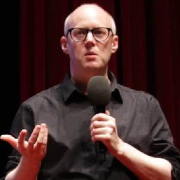The creative economy is currently an area of major importance for Arts and Humanities Research Council (AHRC) research funding.
Within this area of research there have been important investments linking practitioners and businesses with academics and universities.
AHRC has also invested in the Policy and Evidence Centre (PEC) to respond to, and to shape, the dynamic nature of creative industries research questions and policy interventions.
Diversity
One of the key elements of this agenda has been diversity in the creative economy.
This is a complex subject, and critical academic research has been crucial to how we understand the term.
That same research tradition has demonstrated how diversity policies have, in the long term, failed to meaningfully transform the workforce of the creative economy.
The vast majority of creative organisations are keen to support a diverse workforce, and to attract a diverse audience or diverse customer base. Yet, as academic research demonstrates, the demographics of who gets in to creative jobs, and who sees progress to the most prestigious positions, are still dominated by one specific group. White, middle class origin, able bodied, men.
The dominance of this group is mirrored by the under-representation, particularly from senior positions, of:
- women
- people of colour
- disabled people
- those from working class origins.
Patterns of exclusions and inequalities
Moreover, particular jobs in the creative economy, such as film directors, screen writers, senior advertising executives, authors and writers, and journalists, have distinctive patterns of exclusions and inequalities.
In this context, creative organisations are keen to get research informed advice on ‘what works’ to support change.
The question of ‘what works’ for a range of questions, in a variety of different organisational and policy settings, has been the subject of UKRI funded research centres. As well as developing academic literature.
What works?
‘What works’ questions are rarely applied to the creative economy, especially on the subject of workforce diversity.
This is the context for the recent Creative Majority report, published by the All Party Parliamentary Group (APPG) for Creative Diversity, and supported by:
- Paul Hamlyn Foundation
- NBC Universal
- AHRC.
Creative Majority conducted a systematic review of the literature on what works to support diversity across all areas of the economy.
It identified five elements that correspond to 27 policy recommendations:
- ambition
- allyship
- accessibility
- adaptability
- accountability.
The recommendations include the need for more awareness of employers’ statutory duties under the Equality Act, and programmes of financial support for grassroots organisations.
Limits of current approaches
Most crucially, the review of the evidence, alongside the roundtable sessions, stressed the limits of some current approaches that are put forward as a single solution to promoting equity, diversity, and inclusion.
Sharing the insights of research can be tricky; creative practitioners are often hugely engaged and interested in research, but are almost always busy with their creative work. Finding ways to communicate the insights from a huge range of literature, drawn from academic fields beyond the arts and humanities, was a complex task.
Key sector voices
Creative Majority’s success at synthesis and communication is reflective of both the participation of key sector voices as well as design and communications expertise at King’s College London.
The report also reflects a partnership that goes beyond the rich and productive relationship of the APPG, the parliamentarians, universities, and the academic researchers.
Creative Majority was published during the same month as:
- AHRC PEC’s social mobility in the creative economy: rebuilding and levelling up? report
- Social Mobility Commission’s socio-economic diversity and inclusion toolkit for creative industries (PDF, 7.58MB).
These documents, although focused on issues of inequality associated with class and social mobility, try to synthesise research insights with policy and practical guidance. They reflect the importance of addressing inequalities within the creative economy and the broader network of researchers and policymakers who are committed to this agenda.
Monitoring change
Change, however, needs to be monitored if we are to have any understanding of the impact of these policy and practice interventions.
It is striking that all three of these reports call for better, more consistent, and more detailed, data collection and analysis systems across the sector.
Some of this work is already being done, for example by the Arts Council in England. Yet, it is also an opportunity for future research collaborations.
A longstanding issue for creative economy academics has been how best to capture the dynamism of the industries and occupations that constitute the creative sector. These academic questions have seen, comparatively, less attention from policymakers.
It is vital we place the need for a more diverse cultural workforce at the centre of future research partnerships. Particularly as new forms of data emerge to give insights about the creative economy. And as policy and practitioners continue to seek research informing ‘what works’ for a variety of organisational and individual decisions..
Answering ‘what works’ questions
The need for change is not solely an issue for creative organisations.
Universities and research funders are beginning to face up to the legacy of a longstanding lack of diversity in their workforce and in their range of research projects.
Researchers play an essential and central role in answering ‘what works’ questions. Universities and funders must also learn lessons from other sectors that are committing to fully support equity, diversity, and inclusion in the workforce.
Top image: Credit: PeterPencil/GettyImages




